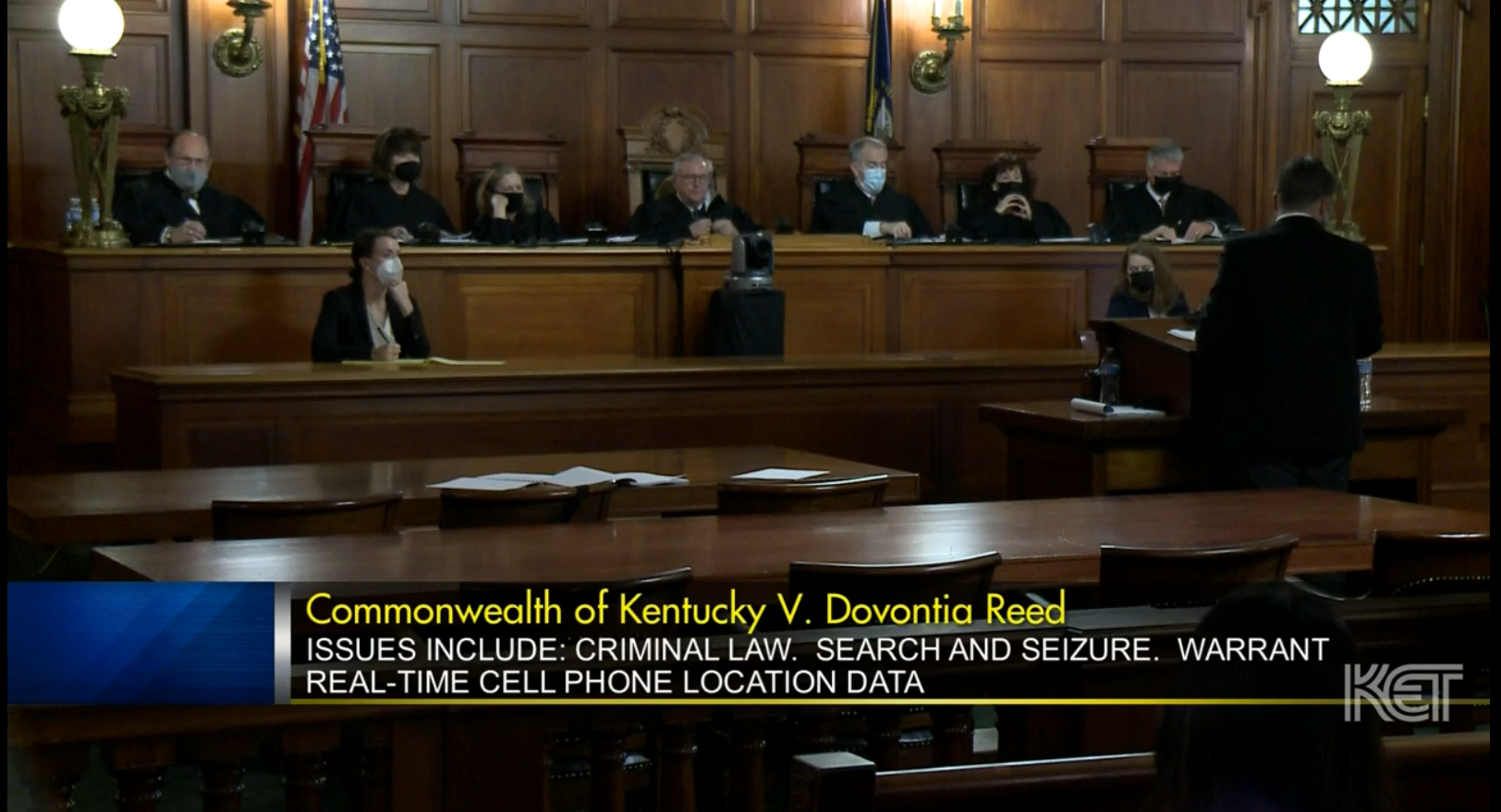FRANKFORT, Ky. (CN) — In a split 4-3 decision, the Kentucky Supreme Court ruled in favor of a man challenging the use of his cellphone location data in his criminal case.
The justices ruled in favor of Dovontia Reed, who had sought to suppress cellphone location data that was used in his criminal case and that was obtained without a warrant.
“I am pleased with the result not only for my client Mr. Reed but also for all Kentuckians. This case reaffirms the long held ideal that we are all free in our personal lives from the government conducting a search without warrant,” said attorney Adam Meyer, who represented Reed in his appeal.
According to court documents, Reed called an acquaintance on his cellphone and asked him to meet him at a gas station because he had run out of gas. Allegedly when the individual arrived, Reed threatened him with a gun and robbed him before leaving the scene in his car.
After being contacted by the victim, police used the gas station’s security footage to identify Reed’s vehicle. The individual also gave police Reed’s cellphone number.
The police used this information to obtain data from Reed’s cellphone carrier which they then used to locate and arrest Reed who was still driving at the time. Reed was then charged with robbery and for possession of a handgun by a convicted felon.
Reed attempted to have his location data suppressed but the trial court ruled against him. Reed eventually entered a guilty plea, with the caveat that he could still appeal the use of the location data.
An appeals court ruled in favor of Reed in a February 2020 opinion, but the state’s appeal of that ruling landed the case in front of the Kentucky Supreme Court, which heard oral arguments in October 2021.
The decision Friday was split 4-3 in favor of the Reed, with the majority finding the warrantless use of the cellphone location data to be a bridge too far.
“In obtaining an individual’s cell phone’s real-time CSLI, police commandeer the cell phone and its transmissions for the purpose of locating that individual,” wrote Chief Justice John Minton Jr. for the majority. “We find this usurpation of an individual’s private property profoundly invasive, and we liken it to a technological trespass. Such an appropriation of an individual’s cell phone is precisely the sort of invasion that we find the average citizen unwilling to accept.”
Justice Laurance VanMeter penned the dissenting opinion and disagreed with the majority’s framework finding “that individuals do not have a reasonable expectation of privacy in their real-time CSLI while traveling over public roads,” so long as that information is “sought in limited scope and purpose.”
Despite the split court, Meyer further championed that the ruling has provided clarity on this issue.
“Even with the rapid changes in technology the protections of the Fourth amendment of the United States Constitution and Section 10 of the Kentucky Constitution still stand strong," he said. "The long hanging questions of whether real-time cell site location information can be obtained without a warrant has now been answered. The government must get a warrant.”
Echoing this sentiment, was the ACLU of Kentucky who had argued in their court brief that the police’s use of the real time cellphone data was improper.
“We are very pleased with the court’s ruling, and salute the KY Department of Public Advocacy public defenders that successfully pursued this issue,” said Heather Gatnarek a staff attorney with the ACLU of Kentucky. “Following from the US Supreme Court’s precedent in Carpenter v. US (2018), this was the correct decision and we are glad the Kentucky Supreme Court recognized that. We should all feel secure that police cannot obtain our cell site location data without first obtaining a warrant and comporting with the protections afforded by that process.”
Subscribe to Closing Arguments
Sign up for new weekly newsletter Closing Arguments to get the latest about ongoing trials, major litigation and hot cases and rulings in courthouses around the U.S. and the world.









